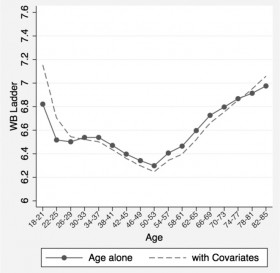December 26th, 2010 by Glenn Laffel, M.D., Ph.D. in Better Health Network, Health Tips, News, Research
3 Comments »

 Flashbacks are vivid, recurring, intrusive, and unwanted mental images of a past traumatic experience. They are a sine qua non of post-traumatic stress disorder (PTSD). Although drugs and cognitive behavioral interventions are available to treat PTSD, clinicians would prefer to utilize some sort of early intervention to prevent flashbacks from developing in the first place.
Flashbacks are vivid, recurring, intrusive, and unwanted mental images of a past traumatic experience. They are a sine qua non of post-traumatic stress disorder (PTSD). Although drugs and cognitive behavioral interventions are available to treat PTSD, clinicians would prefer to utilize some sort of early intervention to prevent flashbacks from developing in the first place.
Well, researchers at Oxford University appear to have found one. Remarkably, all it takes is playing Tetris. Yes, Tetris!
The team responsible for the discovery was led by Emily Holmes. The writeup appears in the November issue of PLoS ONE. Holmes and colleagues had reasoned that the human brain has a limited capacity to process memories, and that memory consolidation following a traumatic experience is typically complete within six hours after the event. Holmes’ team also knew that playing Tetris involved the same kind of mental processing as that involved with flashback formation. So they figured if they had people play Tetris during that six-hour window after the traumatic event, it might interfere with memory consolidation of the traumatic experience. That, in turn, would reduce or eliminate the flashbacks. The idea worked like a charm. Read more »
*This blog post was originally published at Pizaazz*
December 26th, 2010 by Elaine Schattner, M.D. in Better Health Network, News, Opinion, Research
No Comments »


This evening, when I finished cleaning up the kitchen after our family dinner, I glanced at the current issue of the Economist. The cover features this headline: the Joy of Growing Old (or why life begins at 46). It’s a light read, as this so-influential magazine goes, but nice to contemplate if you’re, say, 50 years old and wondering about the future.
The article’s thesis is this: Although as people move towards old age they lose things they treasure — vitality, mental sharpness and looks — they also gain what people spend their lives pursuing: Happiness.
Fig. 1 (above): “A snapshot of the age distribution of psychological well-being in the United States,” Stone, et al: PNAS, May 2010 (y-axis: “WB” stands for well-being.)
Young adults are generally cheerful, according to the Economist’s mysterious author or authors. Things go downhill until midlife, and then they pick up again. There’s a long discussion in the article on possible reasons for the U-shaped curve of self-reported well-being. Most plausible among the explanations offered, which might be kind of sad except that in reality (as opposed to ideals) I think it’s generally a good thing, is the “death of ambition, birth of acceptance.” The concept is explained: “Maybe people come to accept their strengths and weaknesses, give up hoping to become chief executive or have a picture shown in the royal Academy…” And this yields contentedness. Read more »
*This blog post was originally published at Medical Lessons*
December 22nd, 2010 by DrRob in Better Health Network, Opinion, True Stories
1 Comment »

 “I need you to do me a favor,” my nurse asked me at the end of our day on Friday.
“I need you to do me a favor,” my nurse asked me at the end of our day on Friday.
“Sure,” I answered. “What do you want?”
“Please have a better week next week,” she said with a pained expression. “I don’t think I can handle another one like this week.”
It was a bad week. There was cancer, there was anxiety, there were family fights, there were very sick children. It’s not that it’s unusual to see tough things (I am a doctor), but the grouping of them had all of us trudging home drained of energy. Spent.
I think this is one of the toughest thing about being a doctor (and nurse, by my nurse’s question): The spending of emotional reserves. I’m not physically active at work, yet I come home tired. I don’t have to be busy to feel drained. It’s not the patients’ fault that I feel tired. They are coming to me to get the service I offer to them, and I think I do that job well. The real problem is in me. The real problem is that I care. Read more »
*This blog post was originally published at Musings of a Distractible Mind*
December 10th, 2010 by AnnMacDonald in Better Health Network, Health Tips, News, Research
1 Comment »

Only one-third of people with major depression achieve remission after trying one antidepressant. When the first medication doesn’t adequately relieve symptoms, next step options include taking a new drug along with the first, or switching to another drug. With time and persistence, nearly seven in 10 adults with major depression eventually find a treatment that works.
Of course, that also means that the remaining one-third of people with major depression cannot achieve remission even after trying multiple options. Experts are hunting for ways to understand the cause of persistent symptoms. In recent years, one theory in particular has gained traction: that many people with hard-to-treat major depression actually suffer from bipolar disorder. However, a paper published online this week in the Archives of General Psychiatry suggests otherwise — and the findings provide new insights into the nature of treatment-resistant depression. Read more »
*This blog post was originally published at Harvard Health Blog*
November 14th, 2010 by DrCharles in Better Health Network, Health Policy, News, Opinion
3 Comments »

 When the Republicans took back the House of Representatives [recently], John Boehner, the presumptive new Speaker and current Senator from Ohio, unleashed a “sob heard round the world.” As The New York Times quotes:
When the Republicans took back the House of Representatives [recently], John Boehner, the presumptive new Speaker and current Senator from Ohio, unleashed a “sob heard round the world.” As The New York Times quotes:
“I’ve spent my whole life chasing the American dream,” (Boehner) said, beginning to cry. He swallowed and tried again. But describing all the bad jobs he had once led to near sobbing when he got to the line, “I poured my heart and soul into running a small business.”
Boehner has cried in public many other times, the recent election night being only the largest stage to date. The tears also flow at his annual golf tournament, or while watching a child pledge allegiance to the flag, listening to a Republican colleague speak about his Vietnam War experiences, the unveiling of a statue of Ronald Reagan, while accepting various awards, during a rendition of “America the Beautiful,” etc. Could these tears be signs of major depression? Should melancholy be a disqualification for leadership? Were Clinton’s tears any better? Read more »
*This blog post was originally published at The Examining Room of Dr. Charles*
 Flashbacks are vivid, recurring, intrusive, and unwanted mental images of a past traumatic experience. They are a sine qua non of post-traumatic stress disorder (PTSD). Although drugs and cognitive behavioral interventions are available to treat PTSD, clinicians would prefer to utilize some sort of early intervention to prevent flashbacks from developing in the first place.
Flashbacks are vivid, recurring, intrusive, and unwanted mental images of a past traumatic experience. They are a sine qua non of post-traumatic stress disorder (PTSD). Although drugs and cognitive behavioral interventions are available to treat PTSD, clinicians would prefer to utilize some sort of early intervention to prevent flashbacks from developing in the first place. 





 “I need you to do me a favor,” my nurse asked me at the end of our day on Friday.
“I need you to do me a favor,” my nurse asked me at the end of our day on Friday.










